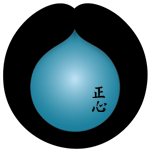The Art of Contemplation
“I have had many wonderful teachers, before and after working with Master Ralston, but none with the intense, diamond-like brilliance at directing pristine contemplation. His ability to create accurate distinctions in the activities of consciousness is unparalleled.”
~John Robert Nieters, L.Ac., QME, DNBAO
In our culture we tend to think of contemplation as a mystical thing, or a strange practice done on occasion by either disciplined people or weird ones.
In the Cheng Hsin work, contemplation is an essential tool for consciousness. It is a skill or art that can be learned and improved. With such a tool we are empowered to penetrate the very nature of self and reality. We need to be able to create a powerful contemplation practice that occurs as naturally as breathing.
Contemplation is creating the possibility that something can be known outside of what is already known or knowable.
Since our pursuit of the truth demands we step beyond the limitations of what we “know,” this is an essential possibility to have.
Contemplation begins at the limit of our observations. We use it to push out past what we can readily or immediately observe and into the unconscious regions of our minds. As well, contemplation is our only means to pursue a direct consciousness of the true nature of things.
The fundamental endeavor in Contemplation is to repeatedly set out to directly experience the true nature of whatever you are contemplating – most frequently this is your self, the nature of your own being. When contemplating your own nature it is best to keep your attention this very moment of your existence. As a result of such immediate contemplation — in which you are opening up in this moment to experience yourself directly — something will come up. By “come up” I mean that some thought, feeling, idea, sensation, memory, or some sort of experience will fill the space of that openness. Or you will directly experience who you are.
Whatever comes up for you when you set out to directly experience yourself — no matter what it is — is allowed to be and accepted for what it is. You perceive it honestly, exactly as it is, and without judgment. You also let it go. This gives you the freedom and space to look into anything, without concern about its correctness, how good or bad it looks, or whether or not it will be judged. Letting go of whatever comes up, you once again set out to experience who you are, repeating this process until you end your period of contemplation.
When we contemplate, since our goal isn’t to stop with what is immediately accessible to our understanding, there is no need to give meaning to whatever comes up, or to figure out what something is within our intellect. Our goal is not one of having good ideas or drawing new conclusions. Our goal is to have a direct conscious recognition of what’s true.
Standing at the brink of the present experience of being is the place where contemplation steps out. We learn to keep our attention on the very threshold of our perception of this moment for the purpose of actually experiencing what something is. If you are in any way attempting to be conscious of the true nature of something, you are contemplating.
Contemplation can be taking place whenever you hear and see and question what is perceived, seeking out a deeper understanding rather than accepting a surface encounter. Questioning what anything is, attempting to grasp it’s real nature, can become an ongoing and fundamental aspect of human awareness.
Sometimes it is also useful to take time to do nothing but contemplate silently and without distraction. This should be seen as more of what you’re already doing and as an opportunity to go beyond where you’re at with what you’re already doing. It should not be seen, however, as trying to experience hearsay or intellectual observations as the case. It should be a complete abandonment and commitment to experience whatever is true, whether it fits in with what’s been heard or believed, or not.
The rather unique and direct approach of Cheng Hsin Zen Consciousness was founded by Peter Ralston. Who is Peter Ralston and why did he create such an approach?
For increased contact with Peter and more information about the ongoing work of Cheng Hsin, sign up for the free Founder’s Newsletter.
Contemplation Intensive and eCourse
The annual week-long Zen Consciousness Contemplation Intensive is a most powerful and hard hitting intense confrontation with contemplation and looking into the true nature of your self. There is nothing quite as effective as a hands on 24 hour period of live-in contemplation such as this. If you have the interest check it out.
In addition to the Contemplation Intensive there is also an eCourse, The Power of Contemplation, to assist you in becoming more adept at contemplation and with a deeper reaching capacity into experientially plumb the depths
